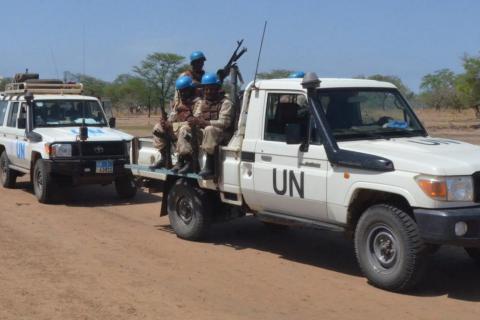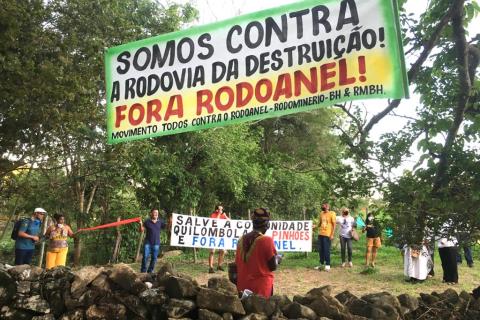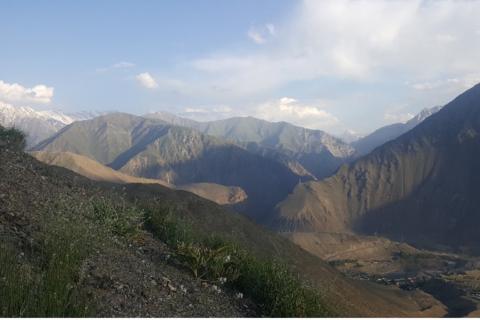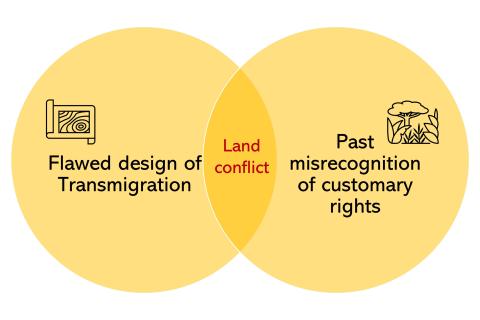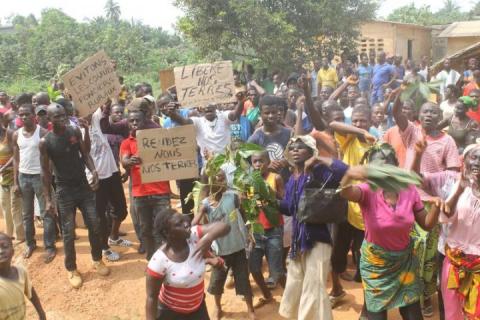RODOANEL NA GRANDE BH (RMBH) SERÁ BRUTALMENTE DEVASTADOR
Abraço ao Cemitério do Povo Negro escravizado, em Santa Luzia, MG. Foto: Alenice Baeta
Kazakhstan on the brink
Blog written by AYJAZ WANI for Observer Research Foundation
Originally posted at https://www.orfonline.org/expert-speak/kazakhstan-on-the-brink/
Main photo: Getty
New book on Mekong examines key land issues featuring extensive research
Curating land information is part of our daily work in the Land Portal. It includes selecting, categorizing, and enriching information with analysis and/or additional data, graphic visualizations, etc. In times with so much information available to choose from, people are increasingly seeking sources that offer selections of high-quality knowledge and provide analysis that make sense of it. Understanding how partners in the land community are meeting this demand is a great source for us to improve our work of curating, and providing meaning to land data.
Conflict and land tenure security: What is the relationship?
Land tenure—the formal and informal relationship individuals and groups form with land—effectively determines who uses what land under which conditions. Tenure security is important to promote rural resilience and climate change adaptation, build endowments of assets, and provide adequate housing. But land tenure security is not static.
What art, culture and language teaches us about land governance in Africa
Ahead of the 2021 Conference on Land Policy in Africa (CLPA), taking place 1 - 4 November, the Land Portal spoke with three members of the organizing committee.
Dr. Rexford A. Ahene is a Professor of Economics at Lafayette College and the Chair of this year's Scientific Committee at the CLPA-2021.
Engaging migrants in natural resource management: Lessons from Indonesia
Environmental policy interventions often result in conflicts because they fail to recognize people’s identity and sense of belongings, as shaped through the places where they live. A recent paper explores a case study of a palm oil project in East Kalimantan, Indonesia, in which competing claims of recognition and land rights have led to conflict between transmigrants and indigenous Kutai people.
Working in crisis mode: lessons from land-governance interventions in fragile and conflict-affected settings
This session brought together colleagues from different organizations working in the broad field of land rights, discussing lessons and experiences from working in crisis mode, in fragile and conflict affected settings. The participants shared experiences, challenges they faced especially during Covid, the solutions they found and critically reflected on shortcomings and unsolved issues.
Kyrgyz-Tajik Relations in the Fergana Valley: Trapped in a Soviet-era Labyrinth
Recent border clashes between Kyrgyz and Tajik troops, which have thus far claimed the lives of over 50 civilians and military personnel, are the latest skirmishes in what seems to be an eternal pattern of sovereignty-related disputes between the two Central Asian nations. There is a case to be made that the problems in the region, driven predominantly by each states’ respective claims to land and water resources, can be attributed to the legacy of both Kyrgyzstan and Tajikistan’s historical position within the Soviet Union.
China Is Building Entire Villages in Another Country’s Territory
Blog written by Robert Barnett and originally posted by Foreign Policy at: https://foreignpolicy.com/2021/05/07/china-bhutan-border-villages-security-forces/

